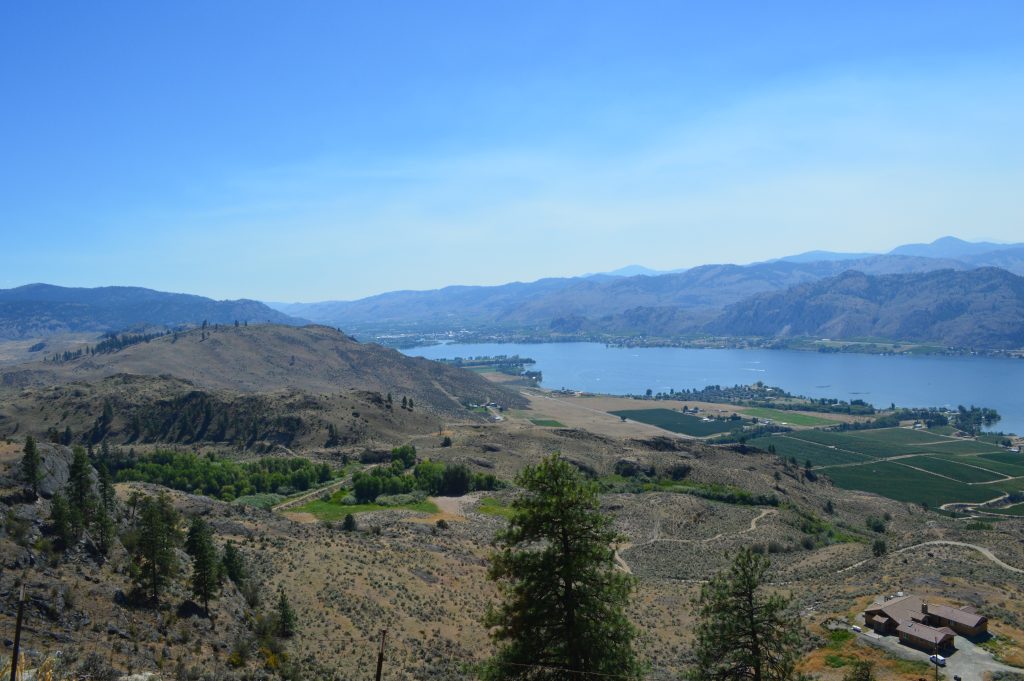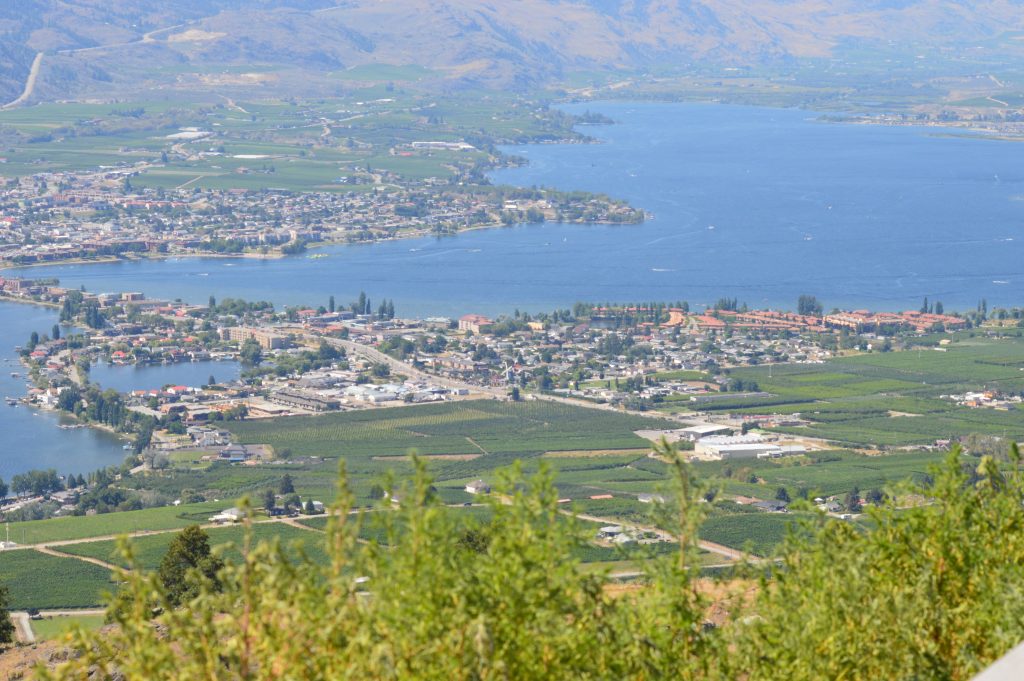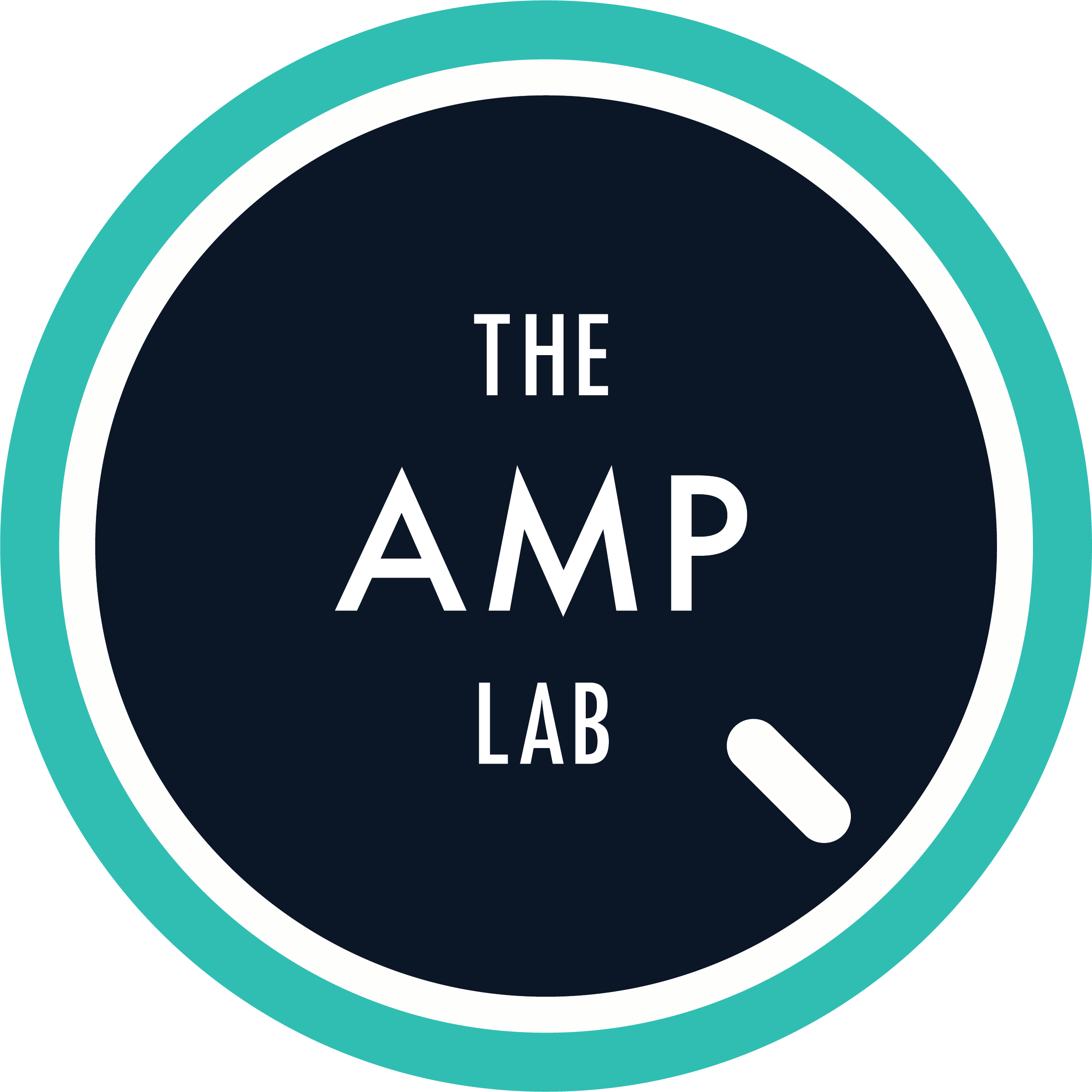Mind the Gap, It’s There on Purpose: The Exclusion of Sound & Oral Histories in Western Academia
Written by Rachel Pickard, Undergraduate student and SpokenWeb RA at UBCO. This series of blog posts has been written in reflection to the summer 2022 URA project The Pocket Desert annotations created using AudiAnnotate. Rachel’s project was funded by the Faculty of Creative and Critical Studies Undergraduate Research Award (URA) and the Sharron Simpson Simpson Family Community Engagement Endowment Fund and was co-supervised by Drs. Kerrie Charnley and Emily Christina Murphy. This project in its entirety can be viewed here for further context and considerations around oral histories, place, Syilx lands and ancestral knowledges, and the use of digital tools to make the work completed in The Pocket Desert radio documentary more accessible and further contextualized.
This post is the third of a three-part series about the importance and relevance of oral histories and audio recordings based on research conducted on “The Pocket Desert” radio documentary.

Despite being essential to the communication and documentation of knowledge and history, sound and audio archives are often benched in Western academic institutions. Formal writing styles, structured papers, and peer-reviewed texts are typically prioritized as “objective” means of communicating information. As Western academic institutions tend to have strictly established protocols and procedures that constitute specific ideas of valid scholarship and normative frameworks of presentation, new barriers and limiting standards are imposed and upheld (Chapman and Sawchuck 6-7). Consequently, crucial voices, knowledge, and creative forms of research––such as sound work––are excluded from Western academia.
The disregard of sound’s significance in research and overall ability to communicate knowledge ultimately leads to a condemning domino effect of barriers in the growth of sound study. Audio archives, for example, are often marginally accessible for listening and the contemporary technology used for accessing and disseminating sound is often not created within the necessary contexts of developing sound technologies, rendering them inadequate for sound work and communication (Clement 401-3). The inaccessibility and insufficient technology for sound work and sound study inhibit the use of audio collections and archives in institutions. Without the use of audio files, allocations of funding for libraries and archives are impacted and the cycle of neglect continues (402).
The gap in accessibility, funding, and regard between sound and written text in Western academic institutions is no accident. Rather, the gap is fundamental in maintaining white supremacy and––especially in settler states such as Canada––settler colonialism.
Since time immemorial, Indigenous Nations around the world have been orally transmitting unique bodies and systems of information, each with their own distinct cultural content (Younging 12). As many Indigenous writers, scholars, and creatives continue to affirm, storytelling plays an essential role in sustaining Indigenous communities through meaningful engagement and validating Indigenous experiences and epistemologies (Archibald 240, Iseke 559). Indigenous language, storytelling, and epistemologies are intrinsically linked to the land as they derive from and document generations of human relationships to the places in which they lived (Cajete 13). Indigenous storytelling and oral histories thus reassert Indigenous knowledge and ongoing relationships to the land.
However, when sound and audio archives are pushed to the margins and delegitimized as ways of communicating knowledge, so are Indigenous voices and epistemologies. Canadian academic institutions in particular have an extensive legacy of attempting to assimilate Indigenous Peoples into a “settler colonial academic status quo” (Gahman and Legault 50-1) that is irreconcilable with Indigenous ways of knowing (Gone 46). As Western academic institutions continue upholding colonial and standardised frameworks of presenting knowledge, the reaffirmation of Indigenous knowledge and ongoing relationships to the land are unable to be properly articulated and heard (Gone 50). In attempting to silence Indigenous Peoples and dismiss Indigenous ways of knowing, settler colonialism continues its pernicious legacy of upholding settler versions of history (Cortassel 178) and dismissing Indigenous relations to land (Gahman and Legault 54-5). Sound, storytelling, and oral histories are therefore necessary to countering and resisting settler colonial narratives.
So, please mind the gap. It’s there on purpose.

Works Cited
Archibald, Jo-ann (Q’um Q’um Xiiem). “Indigenous Storytelling.” Memory, edited by
Philippe Tortell, et al., Peter Wall Institute for Advanced Studies, 2018, pp. 233-41.
Cajete, Gregory. “Chapter 1: Telling a Special Story.” Native Science: Natural laws of
Interdependence, Clear Light Publishers, 2000, pp. 11-56.
Chapman, Owen, and Kim Sawchuck. “Research-Creation: Intervention, analysis, and
‘family resemblances’.” Canadian Journal of Communication, Concordia University,
vol. 37, no. 1, 2012, pp. 5-26.
Clement, Tanya. “The Ear and the Shunting Yard: Meaning Making as Resonance in Early
Information Theory.” Information & Culture, University of Texas Press, vol. 49, no.
4, 2014, pp. 401-426.
Corntassel, Jeff, et al. “Indigenous Storytelling, Truth-telling, and Community Approaches
to Reconciliation.” English Studies in Canada, Edmonton, vol. 35, no. 1, 2009, pp.
137-159.
Gahman, Levi and Gabrielle Legault. “Disrupting the Settler Colonial University: Decolonial
Praxis and Place-Based Education in the Okanagan Valley (British Columbia).”
Capitalism Nature Socialism, vol. 30, no. 1, 2019, pp. 50-69.
Gone, Joseph P. “Considering Indigenous Research Methodologies: Critical Reflections by
an Indigenous Knower.” Qualitative Inquiry, vol. 25, no. 1, 2019, pp. 45-56.
Iseke, Judy. “Indigenous Storytelling as Research.” International Review of Qualitative
Research, U of Illinois, vol. 6, no. 4, 2013, pp. 559-577.
Younging, Gregory. Elements of Indigenous Style: A Guide for Writing By and About
Indigenous Peoples, Brush Education Inc., 2018.

One thought on “The Importance of Oral Histories and Audio Recordings in the Okanagan (Part 3)”
Comments are closed.